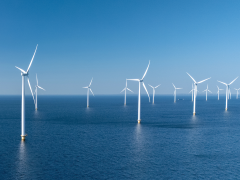Regional energy diversity and sovereignty in different 2 °C and 1.5 °C pathways
Achieving the objectives of the Paris Climate Agreement requires a fast transition of the energy system. This leads to consequences for energy security, which a central element of the energy strategy of many countries. Important dimensions of energy security are energy diversity and energy sovereignty. The main objective of this study is to assess how different strategies and climate objectives affect these dimensions. For this, we developed a set of model-based mitigation scenarios that limit global warming to below 2 °C and 1.5 °C for 16 world regions. The scenarios differ in the energy transition strategy, focusing either more on intermittent renewables or lifestyle change.
We show that energy supply diversity increases in deep mitigation scenarios in practically all regions, especially in India and China. This is due to strong growth of bioenergy and intermittent renewables, together with less fossil fuel use.
There is also a substantial decrease in total energy trade in mitigation scenarios with a strong focus on intermittent renewables. Without such a strong focus on renewables, the decrease in oil and coal trade is offset by additional trade in bioenergy. However, more trade in bioenergy leads to a higher diversity in energy exporters.
Authors
Specifications
- Publication title
- Regional energy diversity and sovereignty in different 2 °C and 1.5 °C pathways
- Publication date
- 28 September 2021
- Publication type
- Article
- Publication language
- English
- Magazine
- Energy
- Issue
- Volume 239, Part B, 15 January 2022, 122197
- Product number
- 4730




